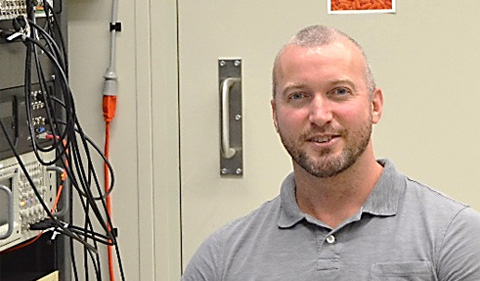
Dr. Mitch Day
Dr. Mitchell L. Day, Assistant Professor of Biological Sciences at Ohio University, was invited to speak at a workshop at the European Institute for Theoretical Neuroscience in Paris.
“The EITN is an open place to foster theoretical neuroscience activities…[and] to create strong interactions with the theoretical neuroscience community,” according to its website.
The workshop was titled “Modelling the auditory system: theory and experiments” and was held May 29 and 30. Day was invited to speak as an expert on the neural circuits underlying sound localization. His talk was titled “Neural encoding and decoding of a centrally computed stimulus feature: sound source location.”
Workshop abstract: Hearing is a fundamental sensory ability for many animals and is involved in various contexts such as communication, identification of distant events, spatial orientation, or even in purely hedonic behaviours such as listening to music. But, despite continuous advance in the neurophysiology of hearing, the principles by which the brain performs auditory perception are still unclear and many complex questions are still waiting for being solved beyond simple examples. What sound features need to be recognized to discriminate biological relevant acoustic sources? How are these features computed and organized across the auditory system? What are the circuit principles that underlie these computations? How are these computations modulated by behavioural context? To address all this complexity, hand-in-hand work between theory and experiments seem to be an unavoidable path. With this workshop, we aim at bridging together a large panel of scientists working on auditory processing at the theoretical and/or experimental level and discuss recent advances on both fronts as well as the current challenges and open questions that this large interdisciplinary effort is currently facing.
The EITN is an institute created by the Human Brain Project, which is funded by the European Union. “The Human Brain Project…strives to accelerate the fields of neuroscience, computing and brain-related medicine. This acceleration will be achieved by a strategic alignment of scientific research programmes in fundamental neuroscience, advanced simulation and multi-scale modelling with the construction of an enabling Research Infrastructure,” according to its website.


















Comments